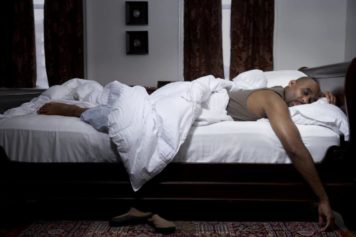White sororities at the University of Alabama are squirming under the glare of a national spotlight and a university-prompted investigation after it was revealed that at least two of the organizations blocked two black women from pledging.
The revelations came by way of an article in the campus newspaper, The Crimson White, which alleged that none of the school’s 16 Panhellenic organizations offered a bid to pledge the two black women, reportedly in at least one case because some alumni members threatened to cut off funding if they accepted a black pledge.
“UA Greek system is still almost completely divided along racial lines,” the article stated, and that the two women “tried to break what remains an almost impenetrable color barrier.”
One of the women, according to the newspaper, appeared to be a perfect candidate—a high school salutatorian with a 4.3 GPA and from a family “with deep roots in local and state public service and a direct link to the University of Alabama.”
“Pi Beta Phi leadership is taking this matter very seriously and has begun looking into the allegations cited in The Crimson White article,” Pi Beta Phi grand president Paula Shepherd told ABCNews.com in an email Thursday. “If any of those allegations are found to be true, those members, alumna or collegiate, will be held accountable for their actions.”
One of the chapter members told the school that Pi Beta Phi alumnae threatened to cut financial support of the sorority after learning that the chapter planned to pledge one of the black students.
Shepherd said that was “troubling and saddening,” claiming the sorority does not discriminate in its membership selection practices and that it would not tolerate any discrimination.
As for the Alpha Gamma Delta chapter, a student told The Crimson White that though most of the active sorority members voiced support for the pledge, it was alumnae who blocked her.
“At Alpha Gamma Delta, we have strong, clear policy against discrimination,” Alpha Gamma Delta executive director Stephanie Sack Bailey told ABCNews.com in an email Thursday. “We instill that in all of our chapters for all they do, including recruitment. If there’s a question as to whether that policy has been violated, we take it seriously, investigate and intervene appropriately.”
Bailey said there is an investigation team “actively looking into this situation to determine whether policy has been violated.”
The alleged racism is particularly troubling and ironic considering that the sorority members and certainly the alumni members surely spend many a Saturday afternoon cheering gustily for the Alabama football team, which is overwhelmingly black and which has earned tens of millions of dollars for the university on its way to the last two national championships.
One wonders how the university community would feel if stars like T.J. Yeldon decided they didn’t want to play on Saturday until sororities opened themselves up to black members.
Though the recruits asked to remain anonymous, the step-grandfather of the student described as a “perfect candidate” is speaking out.
Alabama Circuit Judge John England Jr., who sits on the school’s board of trustees, told USA TODAY that he expressed concerns to university president Judy Bonner and chancellor Robert Witt after learning that his step-granddaughter had been turned down by all 16 sororities. The student is also the stepdaughter of the judge’s son, state Rep. Christopher England, D-Ala.
The judge said he learned that four to seven black students had not been allowed to pledge.
England, who has been a trustee for 15 years and is a graduate of the University of Alabama School of Law, said he believes the school’s leadership wants to do the right thing.
“I know there are people who still live in the ’50s and ’40s, but faculty, members of the Board of Trustees, the chancellor, the president – I know because I’ve had conversations with them – I know that they support the notion that no student should be denied admission to any organization based on race,” England said.
“UA is working with our local chapters and their national organizations to remove any barriers that prevent young women (both the prospective new members and the chapter members) from making the choices they want to make,” Deborah Lane, the school’s associate vice president for university relations, said in a statement.
“The university administration, the members of our local chapters and the vast majority of our alumni fully believe that this is the right time to do the right thing, and we are committed to ensuring that all students have access to and can choose from multiple opportunities that match their personal interests and goals,” the emailed statement read.
The Crimson White reported that it had been told by students that in some cases, alumnae active with the sororities stepped in to ensure the black students did not pledge. According to the piece, many white students in the sororities wanted more diversity.
England said a white student who went to high school with his daughter works with The Crimson White and waited outside of his office two weeks ago to ask him what he thought of the situation.
The judge said his step-granddaughter, who went to a predominantly white high school, has white friends on the University of Alabama campus who were unhappy that she was denied the opportunity to pledge.
“She apparently went through this rush and when she did not make it, they (the friends) were surprised and ultimately I think were upset about that,” England said.
Judge England was part of the first class of African-Americans to attend the law school, just a few years after black students Vivian Malone and James Hood famously managed to successfully register in 1963 despite the attempts by Gov. George Wallace to physically block them.
England said that although black students were much more of a minority then, he did not experience much overt racism.
“I developed a friendship with most of the white law students. I would say I never felt threatened on campus,” he said. “There were no what I could call overt demonstrations of racism.”
As for his step-granddaughter, England said she seems to be fine.
“I’ve seen her this past weekend and she’s saying, ‘I’m fine,’ ” the judge said. “She’s an impressive young lady. She’s impressive and she’s strong. She’s handling it better than I would.”


